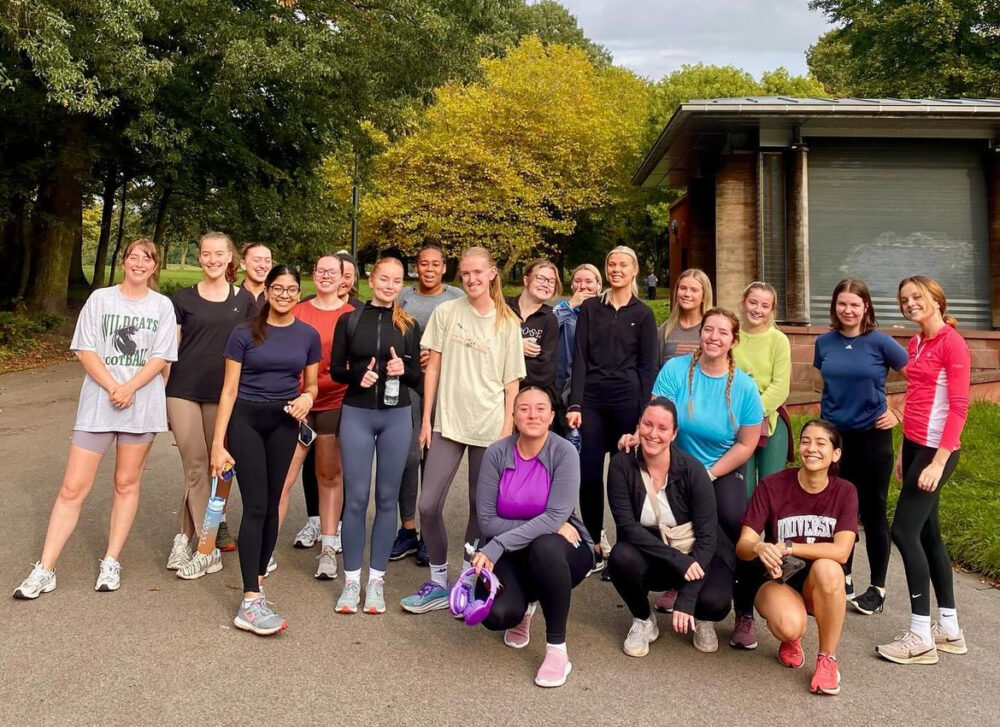
Health & Fitness
Why Seasonal Affective Disorder may feel worse this year and how to boost your mood
3 years ago

Things can start to feel a bit harder than usual around this time of year. With colder weather and shorter days setting in, your mood can be impacted – particularly if you suffer from Seasonal Affective Disorder (SAD).
SAD is “a type of depression that is affected by seasonal changes”, explains Dr Daniel Cichi of Doctor4U (doctor-4-u.co.uk). “Depression can last throughout the year, but if your symptoms only appear during a particular season, you may be experiencing SAD.”
According to Dr Mark Winwood, clinical lead for mental health services at AXA Health (axahealth.co.uk), the condition “can impact people’s mental health in different ways, depending on its severity”. He says common symptoms “include a persistent low mood and energy levels, lack of enjoyment in everyday activities, poor concentration, irritability and intense feelings of sadness that can extend to feelings of guilt and worthlessness”. On the more severe end of the spectrum, “symptoms can often include losing interest in seeing others and physical contact”, he adds.
Cichi also details how people experiencing SAD might sleep “for longer than you usually would, you’re becoming less active and less social, you may even have an increased appetite and gain weight”.
Exactly why some people get SAD isn’t fully understood but it’s believed a number of factors might play a part, with some people being more susceptible to the effects of seasonal changes. “The lack of natural daylight during the winter months, the dull days and early dark nights disrupt our circadian rhythm (body clock), increase melatonin, which makes you feel sleepy, and reduces the feel-good hormone serotonin,” says Cichi. “All of this leads to feelings of depression.”
For people with SAD, things could feel even harder than usual this year, due to all the additional stress and uncertainty surrounding the pandemic. From a practical point of view, Cichi says: “With more people working from home and people having to isolate or shield indoors for long periods of time, this means less exposure to natural daylight. Many people are already feeling low due to the pandemic, which can coincide with seasonal depression and make those symptoms feel worse than in previous years.”
Winwood agrees that “many are certainly finding life more challenging in the coronavirus pandemic. As we move in smaller circles and cancel those winter outings we’d usually look forward to, it’s inevitable there’ll be a heightened risk of mental health problems occurring, including symptoms of depression.”
Whether you suffer from full-blown SAD or are feeling more down than usual this time of year, there are things you can do to help boost your mood…
Get daylight when you can

Particularly if you’re working from home and not commuting, you might find yourself missing out on the hours of daylight entirely – and this could be impacting your mood. Cichi says try to “get as much natural daylight as you can”, by taking “walks during your lunch hour” and creating “a working space in your home that is light and airy”.
The benefit of this is “daylight supports our circadian rhythm and helps us sleep at night”, explains Winwood.
Make sure you’re getting enough sleep
“Get plenty of good quality sleep, as it’s essential for positive health and wellbeing,” advises Winwood. If you’re struggling to get a decent night’s snooze, he recommends cutting down on stimulants like alcohol and caffeine, and restricting screen time before bed.
Exercise regularly

When it’s cold and dark, doing some exercise might be the last thing you actually want to do – but you’ll feel so much better afterwards. It doesn’t have to be much – Winwood says just 20 minutes of physical activity that raises your heart rate “can make you feel more energetic and happier”.
He also recommends making exercise a part of your daily plan, as “incorporating healthy habits and routines into your day can also give your day some structure, which is particularly important in these current times”.
Think about your diet
It’s no secret that what we eat can affect our mental and physical health. “Typically, processed foods are high in sugar and can impact your energy and mood,” says Winwood, recommending you include more healthy options in your diet.
He also says you could benefit by eating foods that support the body’s serotonin production. “These include popcorn, oatmeal, nuts, egg whites, omelettes, vegetables, fruit, peanut butter and cottage cheese,” he says.
Stay connected

During these strange times, it can feel harder than ever to stay connected with friends and family – but doing so could help prevent feelings of loneliness and isolation.
“Make dates for social time with friends and family, so you have things to look forward to,” says Winwood. “Whether it’s via a phone or video call, or a socially distant catch-up (guidelines permitting), having good connections among friends and family is a key contributor to our wellbeing and happiness.”
Seek help if you need it
If your symptoms of depression are overwhelming, it’s always advisable to speak to your GP. As well as leading an active, healthy lifestyle, Cichi says “you may also require additional treatment for this disorder. SAD may be treated in the same way as depression, either with talking therapies or medication, but one of the most effective treatments for SAD is light therapy.
“Light therapy mimics natural daylight, which is lacking in the winter months, and this is thought to boost mood and improve sleep by reducing melatonin and increasing serotonin.” Speak to your doctor if you have any concerns or queries.
Winwood says: “Remember there is no one-size-fits-all solution to mental health; your journey is personal, and you need to do what’s best for you.”









 Subscribe
Subscribe Follow Us
Follow Us Follow Us
Follow Us Follow Us
Follow Us Follow Us
Follow Us Follow Us
Follow Us











